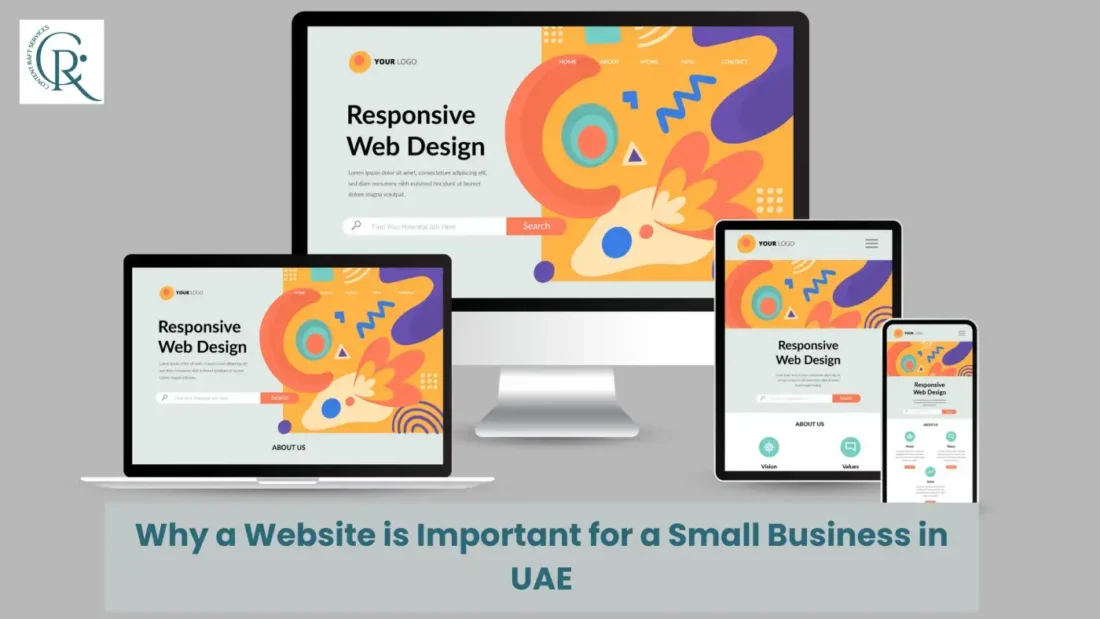
The UAE is a global hub for innovation and business growth. However, small businesses here face stiff competition and high customer expectations. To thrive, establishing a strong online presence is not just beneficial—it’s essential. One of the most effective ways to achieve this is by creating a professional website.
A website is more than just a digital platform; it’s a powerful tool for building credibility, reaching customers, and driving business growth. But why a website is important for a small business in UAE? Let’s explore.
What Is a Website?
A website is a digital space where businesses showcase their products, services, and values. Think of it as an online storefront, open 24/7 and accessible to anyone with an internet connection.
For small businesses in the UAE, a website is not just a necessity—it’s a competitive advantage. It helps connect with local and international customers, build trust, and establish a brand identity in a market driven by technology and innovation.
What Should a Small Business Website Include?
A Domain Name
Your domain name is your website’s address. It should be easy to remember and reflect your business name or purpose. For example, a bakery might use “www.UAEBakery.com.”
Tip: Use domain extensions relevant to your location, such as .ae, to appeal to UAE-based customers.
Professional Website Design and Development
Ensure your website has a professional design and is user-friendly. Since a significant portion of UAE customers browse on smartphones, prioritize mobile responsiveness. So professional website design and development in UAE is important.
Tip: Test your website on multiple devices to ensure seamless functionality.
Reliable Website Hosting
Website hosting ensures your site is live and accessible. Choose a reliable hosting provider to avoid downtime during peak business hours.
Tip: Select UAE-based hosting providers for faster loading times and better customer support.
Regular Maintenance and Updates
Keep your website secure and relevant with regular updates. Backups are essential to prevent data loss during technical issues.
Tip: Schedule monthly maintenance checks to ensure optimal performance.
The Benefits of Having a Website in the UAE
Creates a Digital Identity
In a competitive market like the UAE, a website serves as your digital identity. It sets you apart from competitors by showcasing your unique offerings and values.
Example: A Dubai-based café can use its website to highlight its sustainability initiatives and attract eco-conscious customers.
Builds Customer Trust
Customers in the UAE often research businesses online before making a purchase. A well-designed website with clear and accurate information builds trust and encourages engagement.
Data: According to a 2023 report, 76% of UAE consumers check online reviews and websites before buying.
Enhances Credibility
A professional website signals that you are serious about your business and committed to customer satisfaction.
Tip: Include customer testimonials and industry certifications to boost credibility.
Strengthens Brand Identity
Your website reflects your brand’s values, tone, and style, creating a lasting impression on visitors.
Example: Use culturally relevant design elements, such as Arabic calligraphy or regional imagery, to connect with local customers.
Improves Accessibility
With a website, customers can access your business anytime, anywhere. Features like online bookings or e-commerce functionality ensure convenience.
Tip: Offer bilingual options (Arabic and English) to cater to a broader audience.
Drives Sales and Visibility
By optimizing your website for search engines, you can attract more customers and increase sales.
Example: Use UAE-specific keywords like “Dubai catering services” or “Abu Dhabi custom jewelry” to rank higher in local search results.
Facilitates Better Customer Engagement
Features like live chat, forms, and FAQs enable you to interact with customers directly and address their queries quickly.
Tip: Integrate WhatsApp Business for instant communication, a popular tool in the UAE.
Supports Social Media Marketing
Your website serves as an anchor for social media efforts. Use platforms like Instagram and Facebook to drive traffic to your site for more detailed information or purchases.
How to Use Your Website for get Leads
Optimize for SEO
Use search engine optimization (SEO) techniques to make your website more visible on Google. For instance, include keywords like “UAE small business website” in your content and meta descriptions.
Tip: List your business on Google My Business to improve local search rankings.
Get Affordable SEO Services in UAE
Showcase Customer Reviews
Positive testimonials build trust and influence purchasing decisions. Highlight these on your homepage or a dedicated reviews section.
Example: Feature a mix of Google reviews and testimonials from UAE-based clients.
Highlight Unique Selling Points (USPs)
Clearly communicate what makes your business unique, whether it’s fast delivery, sustainable practices, or a luxury experience.
Example: A Sharjah-based artisan boutique could showcase its handmade products and free UAE-wide delivery.
Conclusion
A website is no longer optional for small businesses in the UAE—it’s a necessity. It helps build trust, improve visibility, and boost sales in a competitive market. By investing in a professional, well-optimized website, you position your business for long-term success.
Why a Website is Important for a Small Business in UAE FAQs
Why is it important for small businesses in the UAE to have a website?
A website helps build credibility, connect with local and international customers, and boost sales in the highly competitive UAE market.
What should a small business website include?
Essential elements include a memorable domain name, professional design, reliable hosting, and regular updates.
How can a website benefit my small business?
Key advantages include enhancing your professional image, improving visibility, and offering 24/7 accessibility to customers.
What features should my website have?
Features like Google Maps integration, bilingual options, and e-commerce functionality ensure your website meets customer needs.
